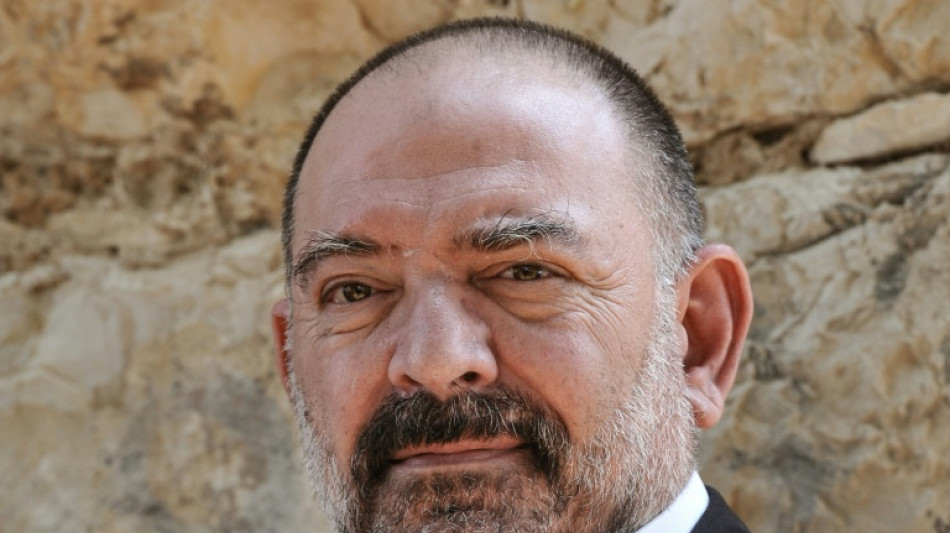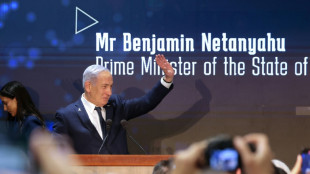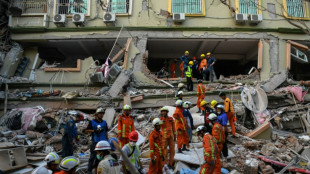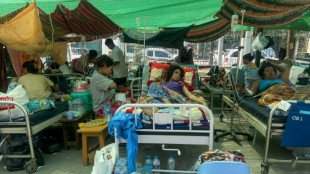
| CMSC | -0.17% | 22.425 | $ | |
| RBGPF | 1.47% | 68 | $ | |
| RYCEF | -2.16% | 9.7 | $ | |
| SCS | -0.32% | 11.065 | $ | |
| NGG | -0.47% | 65.263 | $ | |
| GSK | -1% | 38.355 | $ | |
| RELX | -0.24% | 50.04 | $ | |
| BTI | 1.59% | 41.165 | $ | |
| AZN | -1.24% | 72.885 | $ | |
| RIO | -2.55% | 59.515 | $ | |
| VOD | -0.96% | 9.36 | $ | |
| BP | -0.61% | 33.655 | $ | |
| BCC | -0.39% | 97.919 | $ | |
| JRI | 0.54% | 12.94 | $ | |
| BCE | -0.04% | 22.96 | $ | |
| CMSD | -0.07% | 22.695 | $ |

Rights group slams Lebanon for "flawed" murder probes
Human Rights Watch accused Lebanon on Thursday of "flawed" assassination probes and urged donors to review millions of dollars in aid to security forces in a country where crimes often go unpunished.
"The unsolved murders and shoddy homicide investigations are a reminder of the dangerous weakness of Lebanon's rule of law in the face of unaccountable elites and armed groups," Aya Majzoub of Human Rights Watch said.
Lebanon is gripped by political and economic dysfunction to the point that even investigations into the 2020 Beirut port blast which killed more than 200 people and ravaged entire neighbourhoods have yet to identify a single culprit.
The US-based watchdog reviewed preliminary investigations into the murders of four people since 2020, including Lokman Slim, an intellectual and outspoken critic of the Iran-backed Shiite Hezbollah movement.
Slim was kidnapped in southern Lebanon exactly a year ago and his body found the next day. His family said Hezbollah had threatened Slim several times, most notably in December 2019.
The three other victims are a retired colonel from the customs administration, an amateur military photographer and a bank employee.
Lebanese authorities have not identified suspects in any of the killings and failed to follow clear investigative leads, "even though the murders were committed either in proximity to residential and densely inhabited areas, in broad daylight," Human Rights Watch said.
In one case, the murder was even caught on camera.
Lawyers and relatives of the victims cited by the watchdog said the police only asked them "superficial" questions limited to "far-fetched potential personal motivations for the murders." They ignored leads potentially linking the victims' politically-sensitive work to their assassination.
The group urged authorities to open investigations into allegations of misconduct and gross negligence from officials dealing with the murder probes.
Donor countries, which have funnelled millions of dollars in assistance to Lebanon's security apparatus, should review their contributions "to ensure that they are not funding units engaged in the cover-up of sensitive murders," Majzoub said.
In a recent interview with AFP Slim's widow, Monika Borgmann, expressed doubts that the local investigation into his murder would ever yield results. That, she said, would be like "giving the green light to the killers, whoever they are, to continue."
There have been at least 220 assassinations and murder attempts since Lebanon's independence in 1943 until Slim's killing last year, according to Beirut-based consultancy firm Information International.
Investigations into these murders have rarely yielded results due to political interference or lack of evidence.
Y.Niessen--JdB



